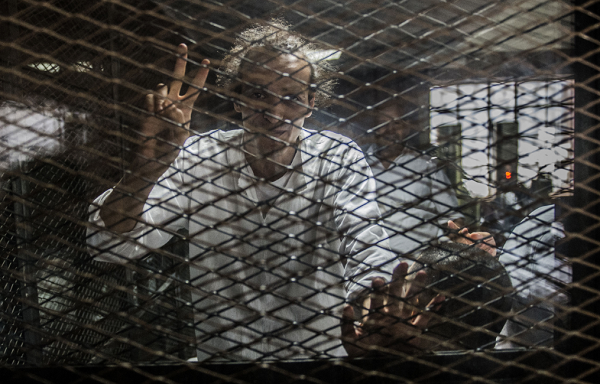Egypt News: Human Rights Group Reports 13 New Prisons For Political Detainees Amid Claims Of Harsh Conditions

Egypt has built 13 new prisons following the military coup of former Islamist President Mohammed Morsi in June 2013, according to a report by Egyptian rights group Arabic Network for Human Rights Information (ANHRI). The "increase in the number of prisons means a rise in the deprivation of freedom" in Egypt, ANHRI reports.
Before the 2011 revolution that ousted longtime president Hosni Mubarak, Egypt only had a total of 43 prisons. Now there are 504 detention centers to house refugees and political prisoners, including jails and stations.
The increase in prisons also comes with a new establishment of prison facility types. The first type is where men are expected to complete their sentences at Abu Zaabal, Tora, Borg Al-Arab, Gamasa, and Minya Penitentiary.
The second type are general prisons for men and women at facilities like Banha General Prison, Tanta Prison, Al-Qanater Prison, Qantara General Prison, Gamasa Prison, and Wadi Al-Natroun 1 Prison. The third type is described as central prisons where detainees are held in pre-trial custody or where prisoners are sent to serve less than three months. The fourth type is considered a special prison where “only certain categories of prisoners, not based on the type of penalty” are housed, or rather a place for prisoners to go based on who they are opposed to the verdict of their trials.
The report comes amid claims of extreme and difficult conditions faced in the Egyptian prison system, including violations of prisoner’s rights and the continuing influx of detainees.
The ANHRI refrained from detailing the harsh conditions allegedly faced by prisoners but instead cited the types of violations committed against prisoners according to the laws that guarantee the rights of detained defendants, including arrest or detainment without being allowed to contact a family member, interrogation without the presence of a lawyer, prolonged pre-trial detentions, detention of minors with adults, denial of medical care, violation of legal visiting time and infringement on solitary confinement regulations.
Here is the full report.
© Copyright IBTimes 2024. All rights reserved.





















